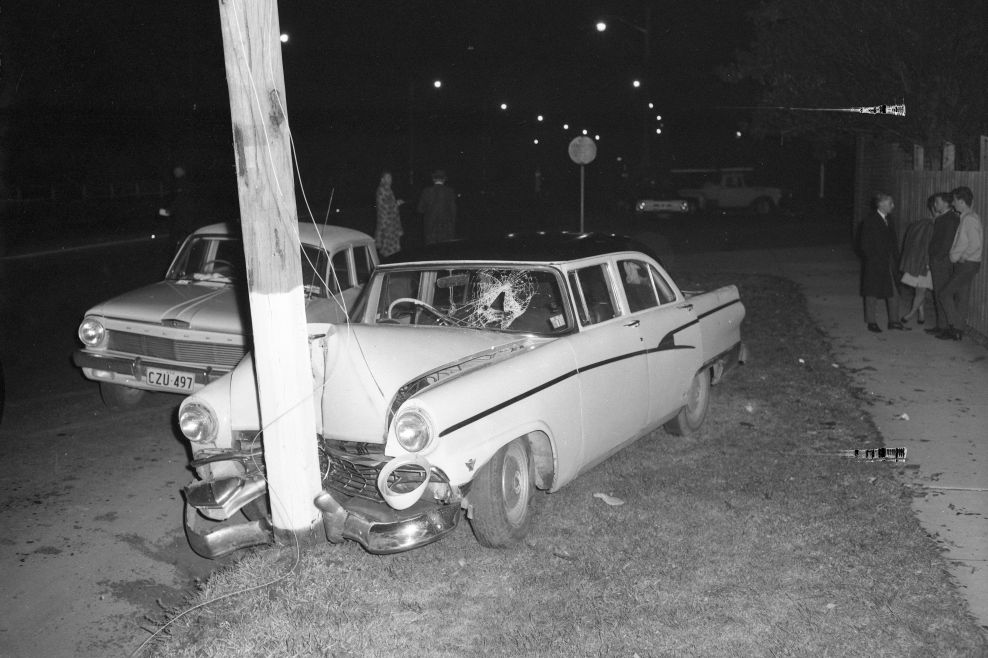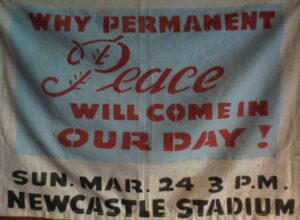“Ask him if it’s his birthday”, was the bizarre advice once proffered to me as a cadet reporter on a daily newspaper. The cadet counsellor – who lectured us once a week on different aspects of our job – was asking us to imagine attending an accident scene where an unfortunate man had become pinned beneath some kind of heavy machine.
Our counsellor somehow pictured a scenario where this trapped person would be fine with answering questions from a cub reporter while simultaneously being rescued from his presumably life-threatening predicament. So, apparently, we would be asking the usual things like, how did it happen etc, but then we would throw in the “is it your birthday?” wild card in the hope that the one in 365 chance would come off and he would say yes. This would convert a good story into a great story, our counsellor enthused.
I frankly doubt whether any of us ever put that piece of advice into practice. I know I never did. But for most journalists in those days, approaching people in distress for details of the bad circumstances in which they found themselves was a standard part of the job. Emblematic of this type of task was the “death-knock”, where a reporter was sent to find and interview family members and friends of people who had just died, usually in some kind of accident. Death-knocks were a polarising topic in our newsroom. Some reporters handled them quite easily while others dreaded them viscerally and would flatly refuse to do them.
I did my share of death-knocks and, although they made me feel anxious and sometimes guilty, I always managed to knock on the door and put the request in the best and most respectful way I could. To me, the situation was a strange one, since I felt that in such circumstances I would probably not want to talk to a reporter. And yet my experience was that the vast majority of people responded positively. Many, believe it or not, were clearly glad to have somebody to talk to about their grief and loss and pleased to convey a sense of their love for the lost family member or friend to the wider community through the agency of a newspaper journalist.
Reporters and “death knocks”
These interviews could be hard work, often involving hand-holding, tears and a lot of confidential talk that would never appear in print. I will not shy away from admitting that they could be emotionally taxing. Indeed, a major complaint of journalists at the time in which I worked was that no debriefing system existed, other than pub talk with colleagues who knew what it was like or with a spouse or close friend who was willing to try to understand.
I will never forget one occasion – it was a death by medical misadventure in a major hospital followed by a callous cover-up attempt – being called to explain the story in the paper’s afternoon news conference. Trying to recite the details of the story upset me so much that I cried – an acutely embarrassing experience for a supposedly seasoned reporter. I’m grateful that the senior journalists present did not ridicule me, and also grateful that the story led the next day’s paper, achieving something for my bereaved interviewee.
Death-knock assignments – like some other reporting jobs – often felt like sacred responsibilities (if you can believe that) and I would be holding my breath the day the report appeared in the paper until I heard from the family that they were pleased with what I had written. There was great personal and professional affirmation in that, and I still have a file of cards and thankyou letters from people I dealt with in this and similar capacities.
An unpleasant part of death-knocks was the competition that existed between rival media outlets. Different outlets had different newsroom cultures and nowhere was this difference more apparent than in death-knocks. One of our most determined competitor outlets ignored all but the biggest stories in our regional patch but had a ferocious fixation on major police and court stories. It was almost always the case with overnight disasters that, by the time we provincially trained reporters were on our way to the “knock”, our metropolitan-focused competitor had been and gone. This was a tremendous disadvantage, as you might imagine. Not only were families reluctant to repeat the interview process, but our competitors had almost always taken away the only readily available photograph of the dead person (these were pre-digital days, remember), promising untruthfully that it would be shared with all media outlets. Reporters always travelled with a photographer on these jobs, and it was easy to copy portrait photos in situ. Our competitor did not appear to offer this option, an omission which often won them the ability to emblazon their product with the coveted “exclusive” label.
Media competition
Incredibly, sometimes certain competing reporters even claimed to be employed by our outlet, either to win the confidence of the family or, if things had gone sour for them, to destroy our chances of success. Like I said, it was a fiercely competitive arena.
Sometimes the “knock” was not a death-knock per se, but related to some other event that was tricky to report. Once I was assigned to report on the aftermath of a savage bashing where members of an outlaw motorcycle gang had allegedly assaulted a person in a pub.
The photographer drove me to the gang’s clubhouse (a converted church) and waited with the motor running while I walked up the driveway and knocked on the door, observing as I did a little sign with a picture of a man being beaten with a baseball bat and carrying the words “No more Mister Nice Guy”. To my surprise the door was answered and both myself and the photographer were invited in, allowed to take photos and given a full account of the incident in which the biker, who gave his name as “Grub” (changed by the sub-editors to “Mr Grub”, in line with inflexible newspaper style) described how a pub patron, angry at some serious insult, had tried to drive his car over the top of the row of motorbikes outside. Grub referred to the victim as a “citizen” and conceded that members of the gang had “tap-danced on his skull”.
Mostly what I remember of death-knocks was the nervousness I felt walking up to the door and the knowledge that some people might be offended or angered by my intrusion on their grief. In practice I found most people were kind and civil. Sometimes they said they didn’t want their loss turned into media fodder and we parted with that understanding. In most cases they invited me in and treated me as a professional with a legitimate role, telling me what had happened and describing the lost friend or relative.
This has all come back to me this week in the wake of the awful bus crash at Greta, in the Hunter Valley. A former colleague, Dan Proudman, still reporting but working now in a changed news environment, was lamenting how the advent of social media and the destruction of the news rooms we once knew had changed the relationship between reporters and the public, especially in death-knocks and similar situations.
“Social media has changed how we deal – and report – on these tragedies. No doubt. So many reporters now just search social media for the busted line of ‘tributes are now flowing’. Many don’t bother touching base with families. And the time spent knocking on doors is now seen as time lost. Not accuracy and meaningful reporting gained. We don’t just put out one paper a day now. We update every hour. And so the entire way we allowed once ourselves to be more in depth, is being lost. Or probably already has been”, Dan wrote.
And yet, despite the demise of the traditional death-knock, the debate about “privacy to grieve” versus “media vultures” is more intense than ever. I think it’s because the old-style knocks were actually very personal and, done the right way, empowered people to share information in difficult times. That said, I know they weren’t always done the right way, and at times almost certainly compounded the grief that some were feeling.
There’s a reason why death-knocks polarised news rooms and I don’t suppose that tension between opposite views on the subject will ever be resolved.




Thank you for this most fascinating post, Greg. I have always held that view that ‘death knocking’ was an appalling practice but like most things in life it is more nuanced than we ever think. You have provided some valuable insights into how the media used to work and I do wonder how things will pan out as we desire more in-depth material but there isn’t the way to pay for it. Monetising long form journalism is hard!
Thanks David. Yes, it’s amazing how often the things we think are clear-cut end up having fuzzy edges after all.
Yes, as a young journo on a Queensland afternoon daily, this task sometimes fell to me. Once, the photographer and I avoided it by lying (“there was no one home”) – well, the house looked deserted, but we didn’t pursue it further. But another time I will always remember was it was exactly as you describe Greg… I was welcomed in, and told so many stories about the deceased (a girl who was killed, would you believe, roller skating) that I made the front page story that day. But I was glad when I joined a TV station that it didn’t appear to believe in these assignments – I never asked why we didn’t do them, was just thankful.
Thanks Mary. Yes, it’s strange, but true, people often welcome the opportunity to talk.